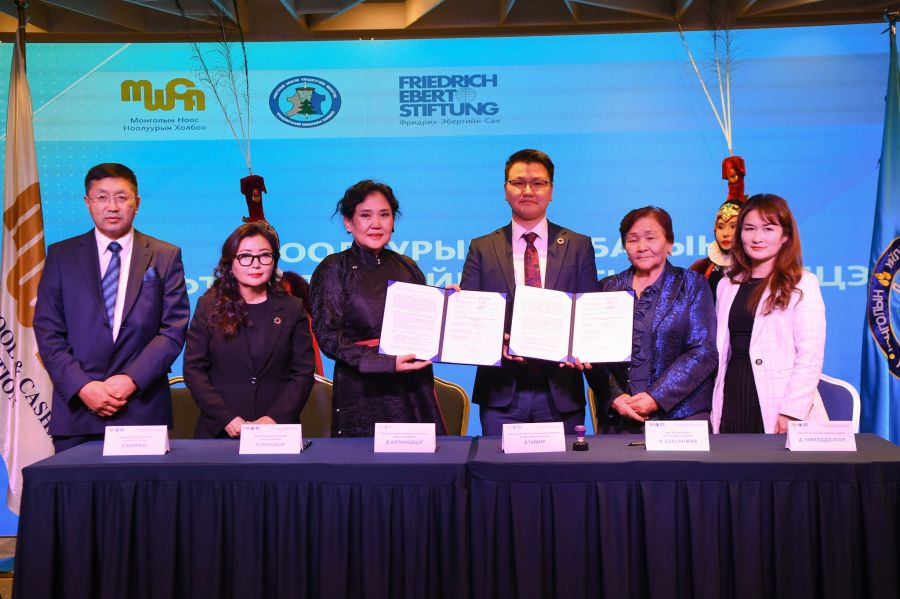In a significant step forward for labor rights and industry standards, Mongolia is set to establish its first Tariff Wage Network in the cashmere sector. This initiative, supported by Germany’s Friedrich-Ebert-Stiftung, is a collaborative effort involving the Mongolian Wool and Cashmere Association (MWCA), the Mongolian Light Industry Workers’ Union (MLIWU), and leading cashmere producers such as Cashmere Holding LLC and Khanbogd LLC.
A Landmark Agreement for Labor Standards
The newly signed “Tariff Agreement,” developed under the framework of Mongolia’s Labor Law (Article 31), adheres to Convention No. 98 of the International Labor Organization (ILO) and international labor principles. The agreement, heralded as Mongolia’s first collective labor agreement that aligns with global standards, will come into effect on January 1, 2026.
This initiative is a pioneering move in Mongolia’s cashmere industry, ensuring workers’ rights are better protected and promoting fair and standardized compensation across the sector.
Standardizing Wages Across the Industry
A comprehensive list of over 230 occupations in the cashmere industry has been developed, detailing job roles at every stage of production. The wage structure will be determined based on factors such as:
• Skill requirements
• Effort involved
• Responsibilities assigned
• Working conditions
The agreement includes a scientifically developed salary coefficient and a methodology for evaluating occupations. By setting standard wage rates, the initiative aims to establish internationally recognized wage norms for the cashmere sector.
Advancing Decent Employment and Sustainability
The introduction of this system is expected to:
• Promote decent work by ensuring fair compensation for all workers.
• Support sustainable production practices through consistent and transparent labor standards.
• Enhance worker satisfaction and productivity by recognizing and valuing their contributions.
Significance for the Cashmere Industry
As one of Mongolia’s key industries, the cashmere sector employs thousands of workers and significantly contributes to the national economy. The implementation of a Tariff Wage Network not only sets a benchmark for other industries in Mongolia but also strengthens the sector’s global competitiveness by adhering to international labor practices.
This development underscores the growing commitment of Mongolia’s industrial leaders and policymakers to create equitable working conditions and sustainable industry practices. With its launch in 2026, the Tariff Wage Network is poised to become a model for labor reform in the country.

